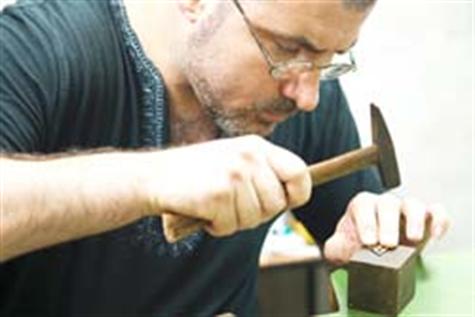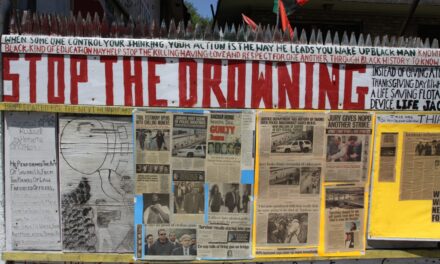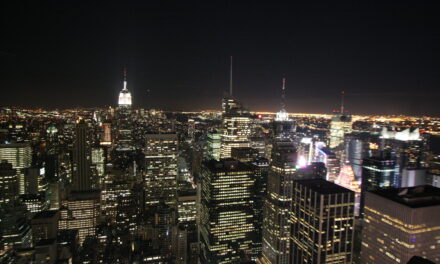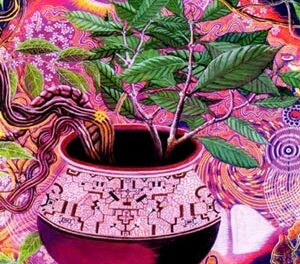
Photo by Philipp Breu
BEIRUT: Yousef Chakr is reluctant to talk about the local gold market, as he insists on getting the approval of the head of his union before talking to the media.
In fact, he’s reluctant to give much away at all, at first refusing to divulge his own name.
“If I could tell you my name I would, but I can’t,” he says. Instead it is his 13-year-old grandson, sitting next to him, who has no problem revealing such sensitive information as the moniker he shares with his grandfather. They also share the same pride in their gold jewelry business, a family tradition for several centuries.
Chakr doesn’t remember when he opened his atelier and nearby shop, Montecarlo, in the heart of Barbour’s gold souk. Born in the Iskandaron district of southern Turkey, he does recollect emigrating from Syria with his brother to continue the family business in Lebanon.
In the 1960s, they worked for other jewelers to gain expertise in the trade, and in 1975, Chakr used his savings to open two shops and a factory in Bourj Hammoud, the country’s largest gold souk. But the factory was lost during the 1980s, when Chakr closed his two shops, and opened Montecarlo.
Now aged 81, he is one of 30 jewelers in Barbour, and one of 150 in the larger neighborhood of Mazraa.
“Gold from Italy is the cheapest,” Chakr says. “I don’t pay import tax.”
Chakr purchases 18 karat gold blocks from Italy and finished pieces from Armenian distributors in Bourj Hammoud. He rarely purchases gold from the Gulf. “They have high labor costs, although the quality of the gold is higher,” Chakr says. “I purchase nothing less than 21 karat gold from the Gulf.”

Workers at Josef Chakr Atelier - Lebanese Jewellery
The center of gold market is Bourj Hammoud, where Armenian-owned businesses dominate, employing numbers of skilled Lebanese and Syrian workers. Monthly salaries range from $500 to $3,000, depending on the worker’s level of skill and craftsmanship.
Chakr saves on labor by employing, for $800 per month, his two skilled sons, who fix and polish gold at the atelier across from Montecarlo.
Chakr claims fixing jewelry is a better business than selling.
“In Barbour, only the ateliers and small shops are left,” he says. “Everyone left for Bourj Hammoud or went out of business.” With gold at $38.4 per 24 karat gram and $28.53 per 18 karat gram, Chakr would be out of business himself without the income generated by the atelier.
On average, a dozen customers visit Montecarlo every day, mainly locals who pass by to check prices and buy specific pieces. Some come from Bourj Hammoud while others show up after referrals. Few come from the Gulf and fewer still from the US. Recently, A Kuwaiti couple negotiated $9,000 for an earring set, while an Armenian customer from the Diamond District in New York City dropped in, to inquire about the price of a necklace.
Chakr sells to individuals, retailers and shops in Bourj Hammoud. His speciality is portraits etched on pendants.
“I sold a piece for $8,000. At a prestigious shop in Achrafieh, it sold for $18,000,” he says. Chakr frowns upon shoppers frequenting Achrafieh and Hamra to buy gold.
“They like to buy from reputable and highly-advertised jewelers in these neighborhoods,” he says, declining to mention the names of the stores.
The pieces on display are no older than 20 years, but elsewhere he keeps considerably older and more valuable items.
His most valuable piece, a coin pendant from Constantinople bearing the Christian Era date 1223, isn’t for sale. In addition, a coin from the 15th century, bearing a Kufic inscription of the name of the Prophet Mohammad, is well preserved. Chakr’s favorite pieces include a gold cigarette holder, a Cleopatra bust on ivory pendant, and a century-old Turkish diamond and pearl jewelry set.
Despite being surrounded by symbolism, Chakr isn’t a particularly religious man. A Christian, he proudly wears a gold neck chain with two pendants, bearing images of the Virgin Mary and an open Koran. In his shop, a Koran sits on display next to 18 karat gold pendants, rings, bracelets, earrings and necklaces. He’s also apolitical, and has put up a sign in his store that reads: “Please don’t talk about politics.”
Chakr refuses to move to the gold center of Bourj Hammoud, as he remains loyal to his neighborhood. His family also remains loyal; one son left medical school to help with the business, while another son and daughter take turns managing the shop. Chakr wanted one son in the business and advised the rest to pursue a different line of work. But they all wanted to take part.
Inside his shop, only large enough to seat four people, he watches CNBC to pass the time. While his demeanor can seem gruff, Chakr’s frown disappears when he proudly points out a photo of his grandson.
Chakr says that he forbade his grandson from taking part in either soccer or acting, fearing that such activities would divert the youngster from a prosperous future.
“I have five sons, two daughters, nine granddaughters, and Yousef. I want him to succeed,” he says.
Chakr’s own likeness isn’t on display in the shop, and neither is his name, as he prefers to keep his identity low-profile.
“He’s old; he doesn’t want any trouble,” explains his grandson with a smile.





